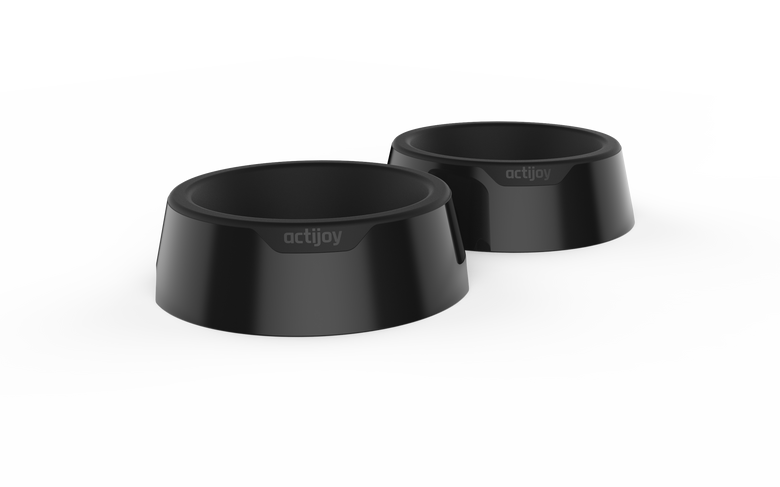How Does Life Change for a Dog Who Has Allergies?
In this week’s installment on canine diseases and their implications we will discuss dogs with allergies. According to CNN, nearly 10% of dogs suffer from some type of allergy.

Discussed here is how the lives of these dogs are impacted.
Food
A dog with food allergies will have to avoid any food or treats that contain the offending ingredient. The most common allergens are wheat, corn, soy, beef, dairy, egg, chicken, lamb, rabbit, pork, and fish. In general, a dog that is allergic to one ingredient is likely to be allergic to multiple foods.
Maintaining a healthy diet might be a challenge in the case of dogs with food allergies. Actijoy Food & Water WiFi dog bowls are a great tool to handle this challenge with ease – by providing all the necessary information about your dog's nutrition.
Environmental
Besides food, dogs can also experience environmental allergies, particularly to mold, dust, pollen, and grass. For these pets, simply walking outside can lead to uncomfortable sensations of itchiness. Dogs might be limited by their allergies and unable to participate in favorite outdoor activities during certain parts of the year. These pets require more frequent baths to keep allergens at bay. Other mitigation techniques include medications, paw washing tools, and rubber boots in order to reduce irritation to the dog’s sensitive feet.
Fleas
Dogs are naturally allergic to fleas, thanks to a compound in the insect’s saliva. Some dogs have worse flea allergies than others, and even one bite can cause torment for your pet. These dogs are likely to develop hot spots and bacterial skin infections. The only way to prevent your dog from experiencing an allergic reaction to flea bites is to provide year-round prevention and to keep your pet away from unfamiliar animals that might pass along fleas.
Symptoms
The most common allergy symptoms include itchy skin, ear infections, runny eyes, sneezing, vomiting, diarrhea, excessive licking, snoring, and swollen paws. These symptoms are uncomfortable for pets, and unless the allergies are treated or exposure is minimized, your dog is likely to be uncomfortable.Types of Allergies
There are three common types of canine allergies. These include:Food
A dog with food allergies will have to avoid any food or treats that contain the offending ingredient. The most common allergens are wheat, corn, soy, beef, dairy, egg, chicken, lamb, rabbit, pork, and fish. In general, a dog that is allergic to one ingredient is likely to be allergic to multiple foods.Maintaining a healthy diet might be a challenge in the case of dogs with food allergies. Actijoy Food & Water WiFi dog bowls are a great tool to handle this challenge with ease – by providing all the necessary information about your dog's nutrition.





